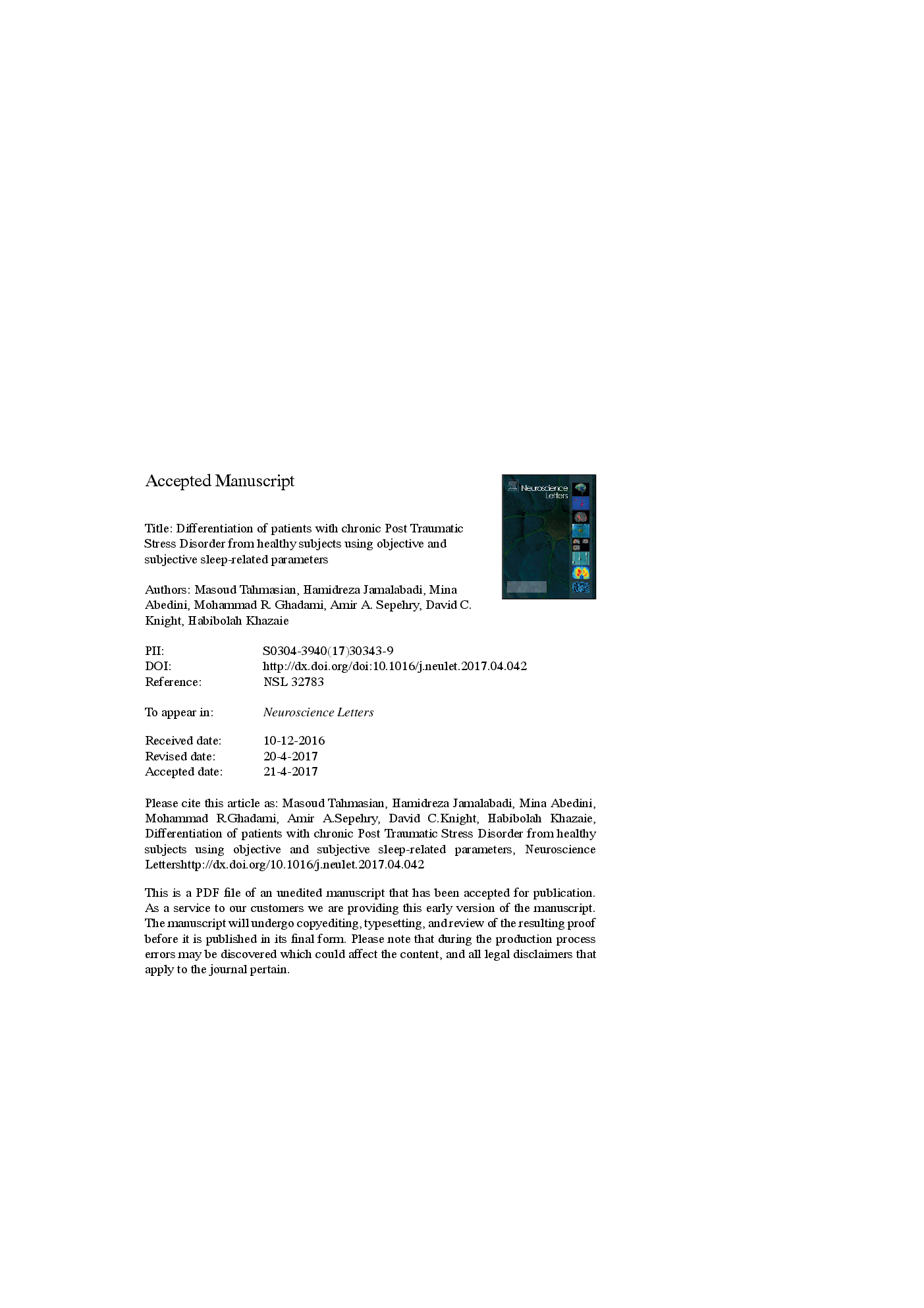ترجمه فارسی عنوان مقاله
اختلال استرس پس از سانحه مزمن بیماران از افراد سالم با استفاده از پارامترهای مرتبط با خواب و پارگی ذهنی
عنوان انگلیسی
Differentiation chronic post traumatic stress disorder patients from healthy subjects using objective and subjective sleep-related parameters
| کد مقاله | سال انتشار | تعداد صفحات مقاله انگلیسی |
|---|---|---|
| 123945 | 2017 | 18 صفحه PDF |
منبع

Publisher : Elsevier - Science Direct (الزویر - ساینس دایرکت)
Journal : Neuroscience Letters, Volume 650, 22 May 2017, Pages 174-179
ترجمه کلمات کلیدی
اختلال استرس پس از ضربه، طبقه بندی، ماشین بردار پشتیبانی، استاتیک
کلمات کلیدی انگلیسی
Post traumatic stress disorder; Classification; Support vector machine; Actigraphy;

